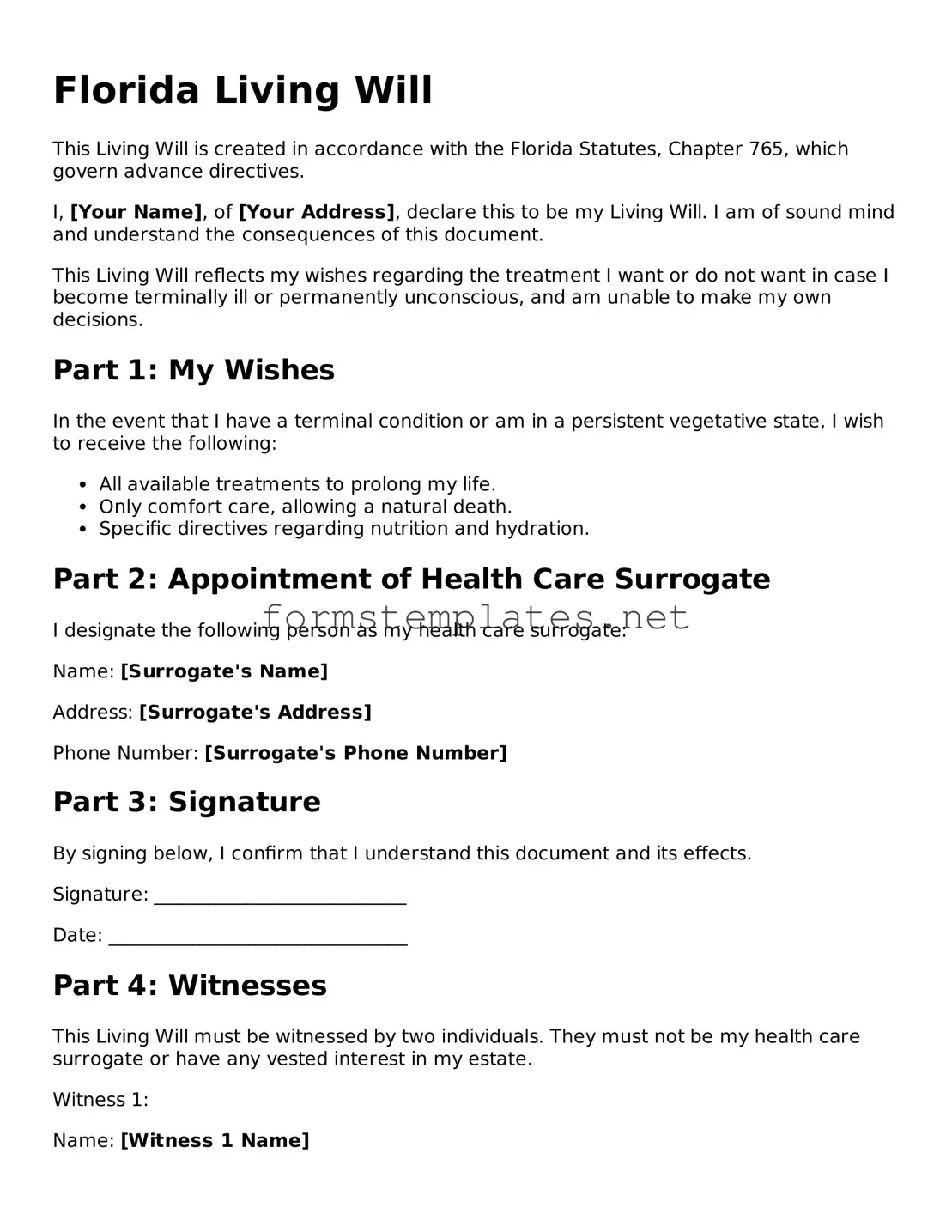Attorney-Approved Florida Living Will Template
A Florida Living Will form is a legal document that allows individuals to outline their preferences regarding medical treatment in the event they become unable to communicate their wishes. This important tool ensures that one's healthcare decisions align with personal values and desires, providing clarity for loved ones and medical professionals alike. Understanding its significance can empower individuals to take control of their healthcare choices.
Open Editor Now

Attorney-Approved Florida Living Will Template
Open Editor Now

Open Editor Now
or
⇓ PDF Form
Your form still needs attention
Finalize Living Will online — simple edits, saving, and download.